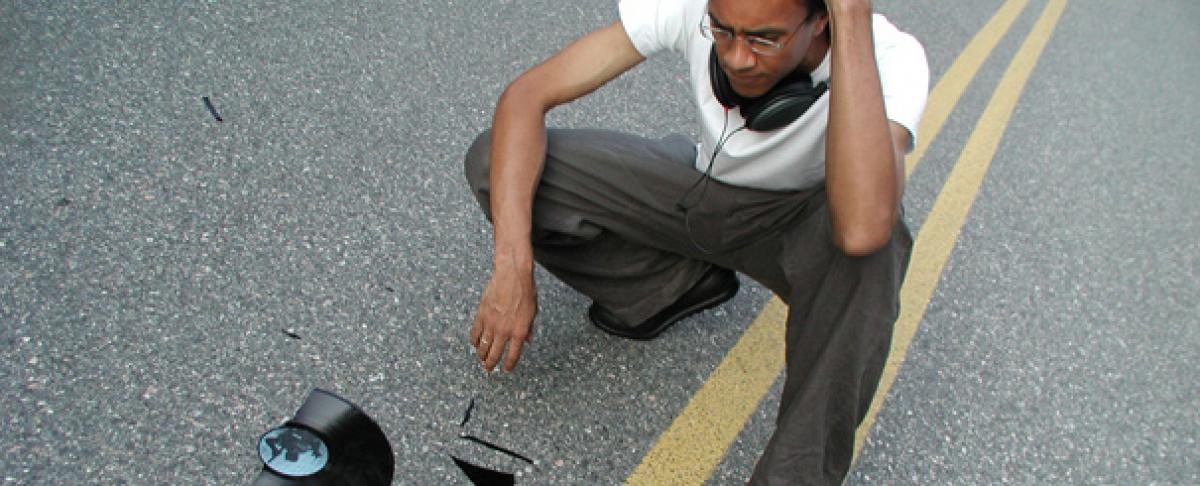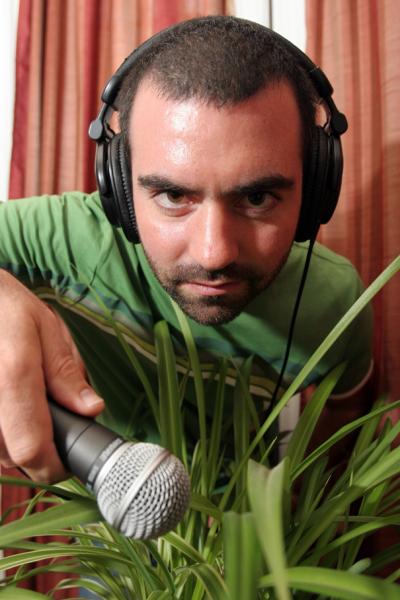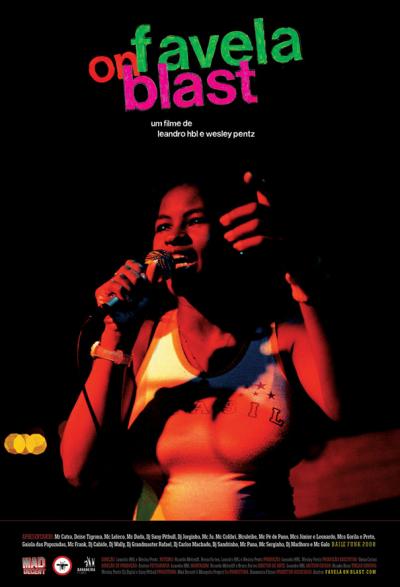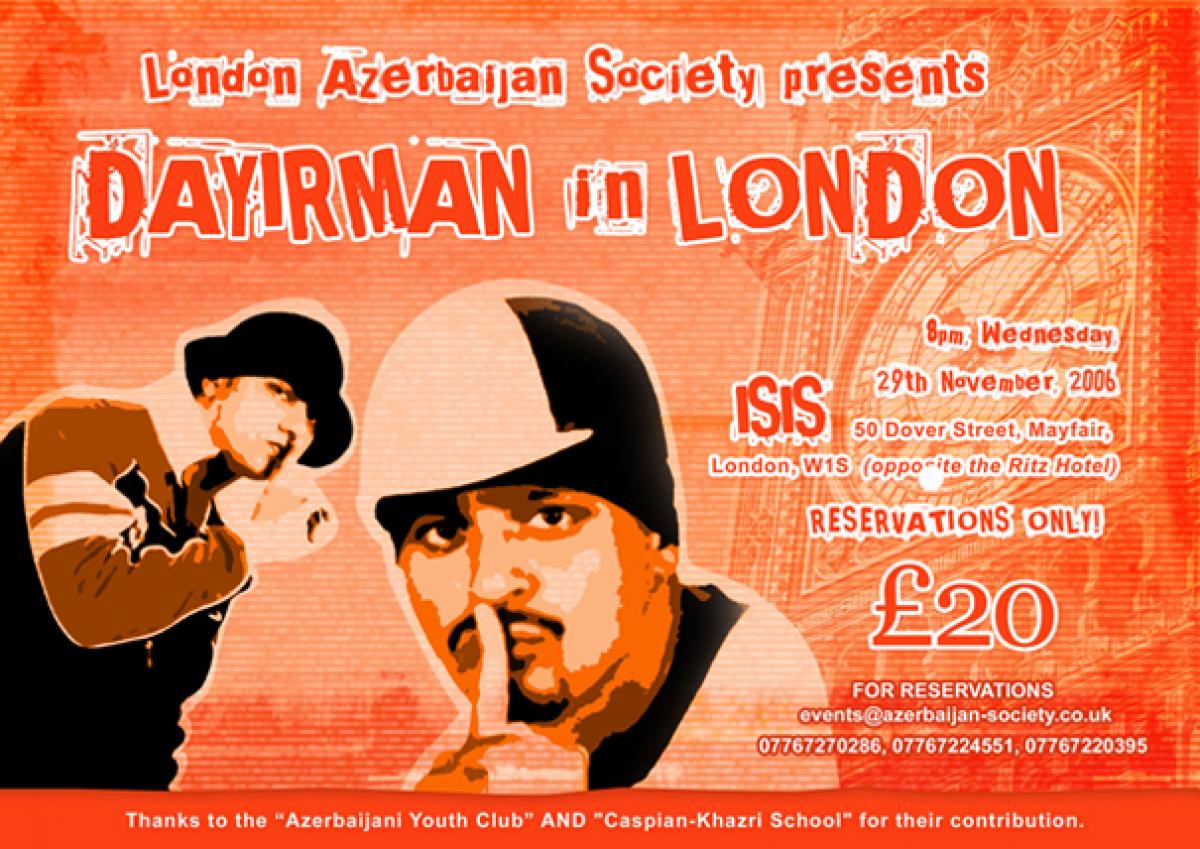With their CD Proibidão C.V.: Forbidden Gang Funk from Rio de Janeiro the US-American Label Sublime Frequencies aims to portrait a moment in time in Brazil. Gregory Scruggs however criticises them as uniformed explorers.
The existence of this CD, Proibidão CV, the subject of my talk, is due in no small part to the efforts of American DJ Wesley Pentz, aka Diplo, who first brought funk to a certain kind of American audience: young, musically au courant, tapped into wider hip-hop and dance music scenes that include music from across the United States, Jamaica, other parts of the Caribbean, the UK, Latin America, and increasingly Africa. Beginning in 2003, he released two funk mixes, «Favela On Blast» and «Favela Strikes Back», and included several funk tracks on his mixtape Piracy Funds Terrorism, which was a promotional tool for the Sri Lankan by way of London artist M.I.A., who in turn borrowed some aspects of funk to make a bricolage of global urban beats that catapulted her to pop stardom.
However, whether out of a desire to monopolize access to funk or simply out of carelessness or even ignorance, Diplo’s inaugural funk efforts were notoriously devoid of any contextual information. In particular, artist and track names are simply nonexistent. The two exclusively funk mixes do not come with track listings even though some tracks are by extremely well known artists like Bonde do Vinho. The mixtape, meanwhile, is more egregious. It features a mixture of commercial hip-hop, recordings of M.I.A., and funk. The latter, however, is listed only as «Baile Funk 1», «Baile Funk 2», «Baile Funk 3». [I should add that «baile funk» has become the name for funk among non-Brazilians.]
Diplo was criticized somewhat for this disservice, although ultimately let off the hook. Music critic Nick Sylvester, reviewing Favela Strikes Back for Pitchfork Media in June 2005, argues «But 10 wrongs do make five rights, and if Diplo’s shtick is bringing this shanty to the world in a way they might respond to and ultimately might take vested interest in (read: $$$), then let’s drop the charges for now and indulge the music as wide-eyed as he does.» While I don’t share Sylvester’s laissez-faire attitude, I’ll nevertheless point out that Diplo has at least made recent efforts to act less like a «culture vulture», including plans to open a branch of HeapsDecent, an NGO that offers music production workshops, in the favela of Cantagalo in the Zona Sul of Rio de Janeiro. He is also working on a movie, Favela On Blast, that purports to put names, faces, and stories to what he had previously presented as anonymous.
Anonymity, however, is the order of the day in this recent release by the label Sublime Frequencies, Proibidão C.V.: Forbidden Gang Funk from Rio de Janeiro. Its liner notes, after providing a brief, simplified, and somewhat inaccurate explanation of proibidão, read: «Recorded and assembled by Carlos Casas. Courtesy of some anonymous MCs and DJs in different bailes along the favelas of Zona Sul, Rio de Janeiro during March-April 2003.» On the opposing page, it prominently states: «All artists are Anonymous. All tracks are Untitled.» It then lists the tracks as «Untitled Proibidao CV» numbers 1-17. For the listener who doesn’t know any Portuguese that, unfortunately, is the end of it. However, a closer listen reveals a more complex CD than the providers are willing to admit, or perhaps are even aware of, in their liner notes.
To begin with, there is little indication that all of the tracks take place in the Zona Sul, as track 3 sings of «tranqulidade na Mangueira», track 10 speaks of a «Festa da Jacaré» in addition to mentioning Vidigal, both 7 and 11 indicate that they are from «Borel», and #2 perform the well-known trope of poetically listing a series of favelas from across the city. Conversely, Rocinha, the stated source of the photographs in the CD package, is not mentioned once. Instead, the photos, which do not document any act of criminal behavior to my eye, implicitly link favelas with the drug trade. It’s an unfair generalization — a CD of proibidão, therefore it needs photos of favelas no matter what they show.
The liner notes also mention «the explicit lyrics of apology to drug gangs and the violent content». I will not dispute that this is present, as tracks 4 & 5 – which appear to be a continuation of the same live recording and not separate tracks – declare, «Hoje vai ter churrasco pra geral / só ninguém vai comer» when speaking of burnt bodies in a prison riot at Bangú 1. On the other hand, there is a more thoughtful view in track #15.
It opens with a protest against stereotypes in a clever call and response: «Dizem que nós somos violentos / Mas desse jeito eu não aguento / Dizem que lá falta educação / Não é desse jeito não / Dizem que não temos competência / Mas isso sim que é violência / Que só sabemos fazer refrão.» (They say we’re violent / But this shit I don’t buy / They say we lack education / That’s not it at all / They say we’re not competent / But that right there is violence / That we only know how to cut refrains») Later, the MC sings affirmatively: «Nós temos escola / nós temos respeito» (We have schools / we have respect) and «cidadão brasileiro e tenho meu valor» (Brazilian citizen and I have my value). Such sentiments are hardly the one-dimensional view that the CD Proibidão CV presents. The prominent spelling of «Cidade de Deus» also makes it clear that this is another track not from the Zona Sul.
Likewise, something beyond apology for the drug trade is taking place in track #12. While the reference to the Comando Vermelho motto «Paz, Justiz, e Liberdade» would affirm its status as proibidão, the earlier lines are of considerable interest. «Eu sei que um dia a gente saí daqui / Não sei o dia e nem sei a hora. / Mas sei que um dia a gente vai embora.» There is an escapist, and I believe even utopian, impulse in these lines. Will «a gente» leave by escaping the cycle of violence, by leaving their community, by dying in a blaze of glory in a gun battle? This open-ended vision credits more toward the insightful analysis of Paul Sneed, who I’m sharing this table with, in his dissertation on proibidão: «Machine Gun Voices: Bandits, Favelas and Utopia in Brazilian Funk.»
Indeed, it is precisely a perspective like Paul’s this is lacking in Sublime Frequencies’ presentation of proibidão. They conclude in the liner notes, «This CD is in no way an apology for these groups, but a document to portray a moment in time in Rio de Janeiro musical and social history.» On their website, meanwhile, they declare the label’s mission: «SUBLIME FREQUENCIES is a collective of explorers dedicated to acquiring and exposing obscure sights and sounds from modern and traditional urban and rural frontiers via film and video, field recordings, radio and short wave transmissions, international folk and pop music, sound anomalies, and other forms of human and natural expression not documented sufficiently through all channels of academic research, the modern recording industry, media, or corporate foundations.»
Such rhetoric is a dodge. If indeed they are «explorers» on the «urban frontier» of Rio de Janeiro seeking to «portray» a particular «moment», then they are uninformed explorers who make no effort to explain the parameters of that moment – where, when, why. Instead, they let the listener concoct his or her own vision of Rio’s favelas based on abrasive beats, gruff voices, and the sampled sound of gunshots.
Such a proposition – suggesting the violence of Rio’s favelas without fleshing that concept in with details – is reminiscent of the attitude that Alex Bellos takes in an article on proibidão for online music publication Blender. He opens the article, «Coke. Guns. Booty. Beats». with the declaration that funk is «the most dangerous – and most exciting – underground club scene in the world». The implicit link, however, is that it is the most exciting because it is the most dangerous. The same principle is at work in Proibidão C.V. – one doesn’t need to actually know what the songs are saying; rather, the music should be exciting simply because of its violent, dangerous context. In both cases, exciting is also a substitute for exotic, for the exotic is exciting as well because it intimates danger. I should add that Sublime Frequencies traffics principally in «exotic» locales like «Java, Bali, Sumatra, Burma, Morocco, Thailand, India, Mali, Syria, Laos, Cambodia, and Nepal».
Anonymity, then, is indeed the rub. I am certain that a lack of knowledge of Portuguese, both among foreigners like Diplo and among their audience, plays a role. However, I think there is a more sinister impulse at work as well. For anonymity ultimately implies unknowability. Radical urbanist Mike Davis provides a chilling account of the consequences of unknowability in Planet of Slums. He concludes the book by arguing that the Pentagon is the only global institution to take seriously the implications of rapid slum growth in large urban areas. He cites U.S. military tactics, which «assert that the ‹feral, failed cities› of the Third World – especially their slum outskirts – will be the distinctive battlespace of the twenty-first century» and continues by quoting an Air Force theorist writing in the Aerospace Power Journal: «Rapid urbanization in developing countries results in a battlespace environment that is decreasingly knowable since it is increasingly unplanned.» But the attitude that slums are going to be the next global battleground, perhaps because of their unknowability, is not limited to the U.S. military. One only need look as far as a recent edition of O Globo to find the polícia civil or, in more extreme cases, the BOPE in blockbuster hit Tropa de elite, engaging in such tactics, trying to bring Rio’s favelas back under the city’s control. Unplanned favelas are unknowable spaces to the uninitiated. They are, moreover, soundtracked by proibidão. But when proibidão is presented as anonymous and unknowable, as in the case here, then it does nothing to increase knowledge – and knowability – about both the music and its environment. Instead, it only encourages the exoticization of both, a process whose consequences may be extremely dire.




